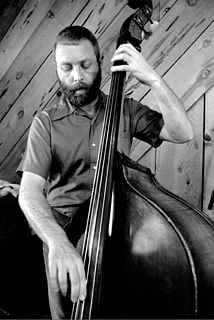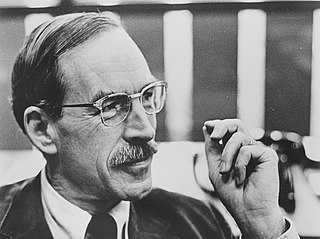A Quote by Nancy Kress
Every story makes a promise to the reader. Actually, two promises, one emotional and one intellectual, since the function of stories is to make us both feel and think.
Related Quotes
The Library is an open sanctuary. It is devoted to individual intellectual inquiry and contemplation. Its function is to provide free access to ideas and information. It is a haven of privacy, a source of both cultural and intellectual sustenance for the individual reader. Since it is thus committed to free and open inquiry on a personal basis, the Library must remain open, with access to it always guaranteed.
Writers imagine that they cull stories from the world. I'm beginning to believe that vanity makes them think so. That it's actually the other way around. Stories cull writers from the world. Stories reveal themselves to us. The public narrative, the private narrative - they colonize us. They commission us. They insist on being told. Fiction and nonfiction are only different techniques of story telling. For reasons that I don't fully understand, fiction dances out of me, and nonfiction is wrenched out by the aching, broken world I wake up to every morning.
All of these promises and all of these votes to repeal Obamacare since 2010, now when senators have the power to actually do it, they don't do it, they can't do it. After all these promises, after all these times being elected on the basis of that promise, and yet they obviously don't fear the voters in their states nearly as much as they fear something else.
Politicians will promise some pretty ridiculous things. They will promise a chicken in every pot. They'll promise that they'll keep Social Security solvent. They'll promise drugs for old people. They'll promise lots of stuff. But it doesn't come near the kind of promises that religion makes. The Mormons promise that if you're good while you're on Earth, you get to rule over your own planet in the afterlife. Now, there's an entitlement that goes a little bit beyond prescription drugs for old people.
The primary function of poetry, as of all the arts, is to make us more aware of ourselves and the world around us. I do not know if such increased awareness makes us more moral or more efficient. I hope not. I think it makes us more human, and I am quite certain it makes us more difficult to deceive.
Stories? We all spend our lives telling them, about this, about that, about people … But some? Some stories are so good we wish they’d never end. They’re so gripping that we’ll go without sleep just to see a little bit more. Some stories bring us laughter and sometimes they bring us tears … but isn’t that what a great story does? Makes you feel? Stories that are so powerful … they really are with us forever.
For us what we're trying to do is find the right balance of creating a space for emotion that leads to a sense of empathy and solidarity rather than a sense of division. In my most grandiose moments I think of HuffPost as a platform that makes solidarity possible, that really thinking about the emotional content of stories is a way to help people who think, or who have been manipulated to think, that they're interests are opposed to one another, that they actually are aligned in a fundamental way and they're actually in the same boat.
I'm definitely excited by big ideas, both in what I write and what I read. Most days, reality is so mind-numbingly dull that I don't understand why someone would write strictly realistic stories, given the almost limitless freedom fiction provides. I don't see the point of making believe if you're not going to actually make believe: hang your ass out in the wind, push at every boundary, make almost unreasonable demands on your reader's willingness to suspend disbelief. This is dangerous, and prone to failure, but that's part of what makes it fun.
But many, many stories were told; from what could be gathered, all fifty of the mine's inhabitants had reacted on each other, two by two, as in combinatorial analysis, that is to say, everyone with all the others, and especially every man with all the women, old maids or married, and every woman with all the men. All I had to do was to select two names at random, better if different sex, and ask a third person, "What happened with those two?" and lo and behold, a splendid story was unfolded for me, since everyone knew the story of everyone else.
Great brands are like great stories. And every story has a beginning, a middle, and an end. And our job is to make sure that every chapter of our stories makes sense to the one in front of it and make sense to the one after it. There is no such thing as an overnight success. You have to get up and put your work boots on every single day.
People who take books on sex to bed become frigid. You get self-conscious. You can't think a story. You can't think, "I shall do a story to improve mankind." Well, it's nonsense. All the great stories, all the really worthwhile plays, are emotional experiences. If you have to ask yourself whether or not you love a girl or you love a boy, forget it. You don't. A story is the same way. You either feel a story and need to write it, or you better not write it.





































